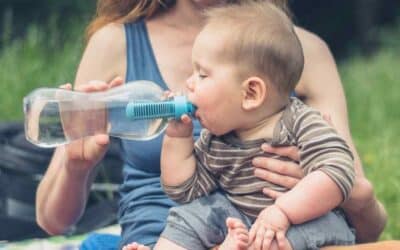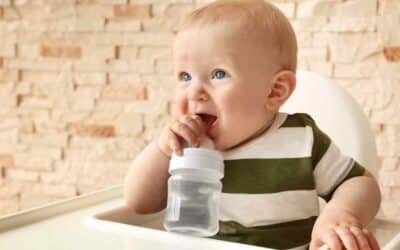As a parent, ensuring the health and safety of your little one is always a top priority. This commitment permeates every aspect of caregiving, right down to the water you use to prepare your baby’s formula. Many parents question the suitability of tap water for this critical task, often considering boiling as a potential way to purify it.
This article will delve into the considerations and complexities around this topic, aiming to provide clarity to parents navigating the waters of infant nutrition.
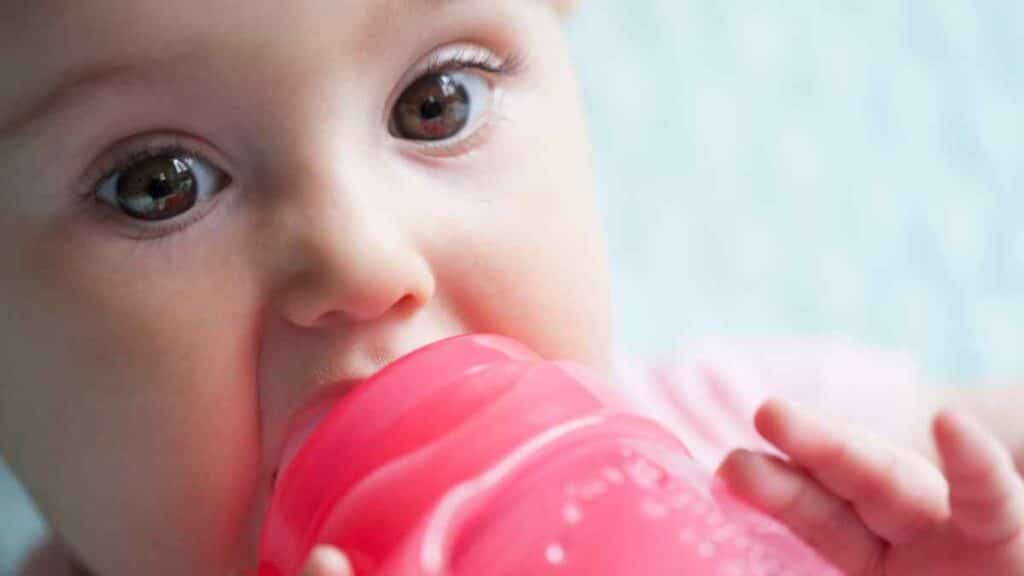
Basic Introduction to Baby Formula
For every parent or caregiver, the main concern is to provide the best care and nutrition for their baby. When it comes to feeding, infant formula is a common choice that provides a safe and nutritious alternative or supplement to breast milk. However, there’s more to preparing infant formula than just mixing a powdered formula or a liquid concentrate formula with water. The quality of water and how it’s prepared can significantly impact the baby’s health and development.
Overview of Baby Formula and Its Components
Baby formula is a manufactured food designed to provide infants with the essential nutrients they need for growth and development. It often includes proteins, carbohydrates, fats, vitamins, and minerals, designed to mimic the nutritional profile of breast milk. The three main types are powdered formula, liquid concentrate formula, and ready-to-feed formula. Each type requires different preparation steps and has its pros and cons.
Role of Water in Formula Preparation
Water plays a pivotal role in preparing infant formula. For powdered and concentrated liquid formulas, water is necessary to dilute the formula to the right consistency. Even ready-to-feed formulas may require water for rinsing the utensils used in feeding. The quality of the water used in preparing formula, whether tap water, bottled water, or otherwise, can significantly affect the overall safety and nutritional content of the prepared formula.
Risks Associated With Contaminated or Unsuitable Water in Formula Preparation
Using contaminated or unsuitable water to prepare infant formula can introduce harmful bacteria or other unwanted substances to your baby’s diet. For instance, tap water can contain various minerals and additives such as fluoride. While fluoride is generally safe and beneficial in low amounts, too much fluoride can lead to a condition known as fluorosis in babies.
Bottled water can be an alternative, with some choosing low-fluoride bottled water. But not all bottled water is fluoride-free, and it may also contain other minerals or substances not ideal for babies.
When it comes to purified vs distilled water for baby formula, each has its advantages. Distilled water has undergone a process that removes almost all minerals and contaminants, making it very pure, but it also lacks beneficial minerals. Purified water, on the other hand, has been filtered or treated to remove contaminants but retains some minerals. It’s always best to consult your local health department or pediatrician to understand what water to use for baby formula in your specific situation.
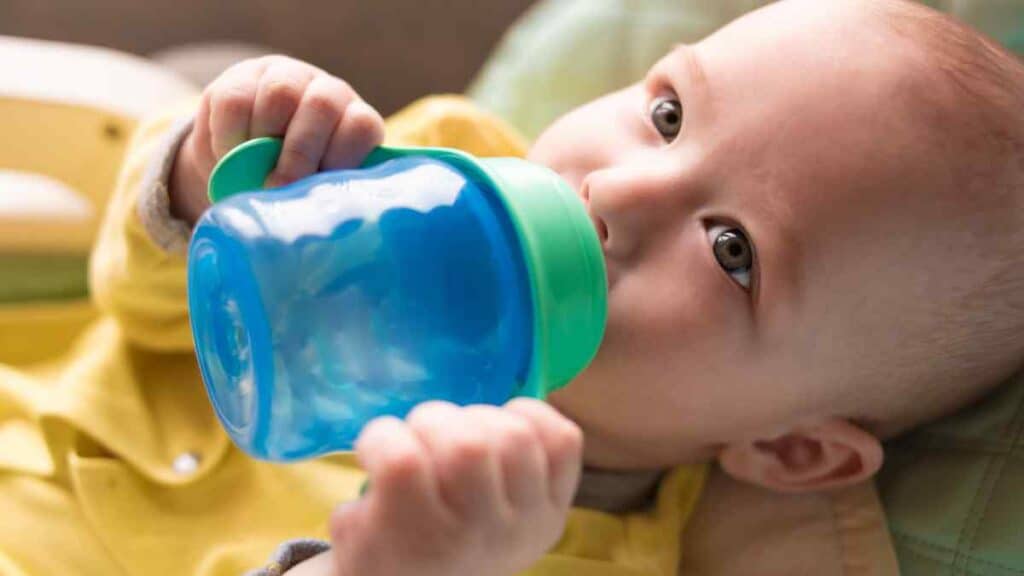
Safely Prepare Baby Formula
To safely prepare baby formula using tap water or other water that’s not sterile, it’s generally recommended to boil the water first. Boiling water can kill most types of harmful bacteria, viruses, and parasites that might be present [1]. However, remember that boiling water does not remove chemicals or minerals, including fluoride.
After boiling, let the water cool to a safe temperature before mixing with formula. Follow the formula manufacturer’s instructions to ensure the right balance of water and formula.
For parents considering whether babies can drink distilled water by themselves or have purified water, it’s important to remember that water should not replace breast milk or formula in the diet of children under six months. For older babies and toddlers, consult with a healthcare professional.
Concerns About Tap Water
As parents, the safety and well-being of your baby are paramount, and this includes even seemingly minor considerations like the type of water used in preparing infant formula. Tap water, while generally safe for adults and older children, may pose certain risks when used in baby’s formula. These risks center around potential contaminants such as bacteria, viruses, lead, chemicals, and even regional differences in water quality.
Potential Contaminants in Tap Water
Tap water can contain an array of potential contaminants. Even when treated at a water facility, tap water can pick up harmful substances as it travels through pipes and into your home. These contaminants may include bacteria and viruses, which can lead to gastrointestinal issues or other infections in babies. Lead, often originating from older plumbing systems, is a particular concern as it can affect a child’s brain development. Chemicals, like pesticides and pharmaceuticals, might also be present depending on the water source and treatment methods.
Additionally, tap water contains fluoride, an additive that helps prevent tooth decay. While generally beneficial, too much fluoride can lead to fluorosis, a condition that can affect the teeth and bones.
Regional Differences in Tap Water Quality and Safety
In the United States, the quality and safety of tap water can vary significantly from one region to another. The Environmental Protection Agency (EPA) sets federal standards for drinking water, but local factors such as the water source, treatment facilities, and the state of the local plumbing can impact the final water quality. Your local health department can provide information about the local water quality, and some may advise boiling tap water or using bottled water for preparing formula.
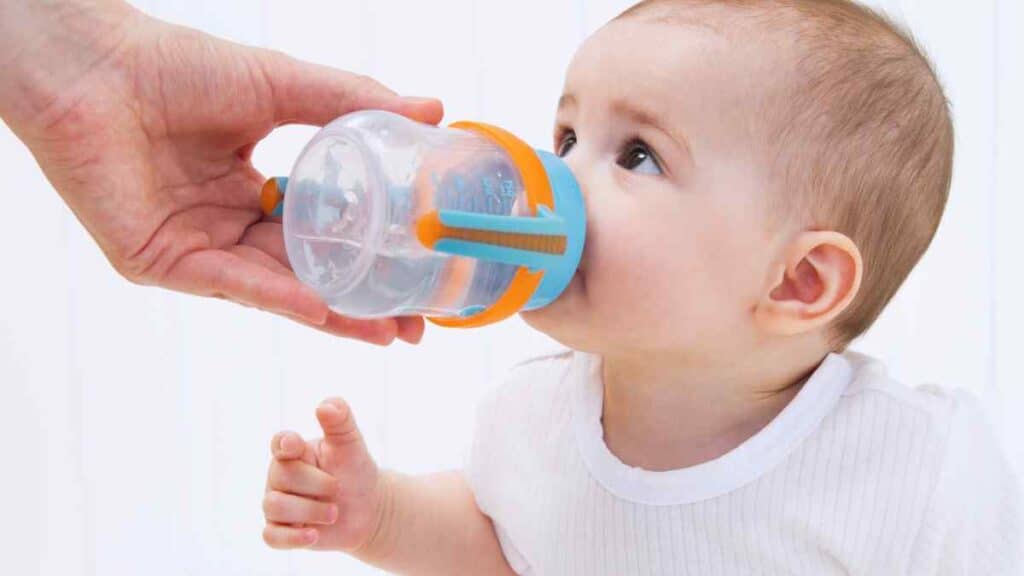
Implications of Using Untreated Tap Water for Baby Formula
Using untreated tap water to prepare infant formula can expose your baby to potential risks. To mitigate these risks, the American Academy of Pediatrics, the World Health Organization, and the Centers for Disease Control all recommend bringing tap water to a rolling boil for one minute before cooling and using it to mix powdered infant formula.
Boiling tap water can effectively kill most types of harmful bacteria, viruses, and parasites, although it does not remove chemicals or heavy metals. Note that after boiling water, it is important to cool it to body temperature or lukewarm before adding it to the powdered formula to avoid damaging the nutrients in the formula.
However, boiling water is not always necessary if you have access to safe and clean water. If your tap water meets all federal drinking water standards and is from a maintained water source, the EPA generally considers it safe to use for preparing infant formula without boiling.
The choice between tap water, purified vs distilled water, or specific bottled water brands often comes down to the quality of local tap water and the specific needs of your baby. While some parents might opt for distilled water for babies, others may find their tap water is safe enough for use.
In some cases, it might be necessary to boil water before using it for formula preparation. But how does boiling work, and what are its limitations? Let’s delve into the science behind it and understand how best to use this method for infant feeding.
How Boiling Works to Kill Bacteria and Viruses
Boiling is a simple but powerful way to purify drinking water. At high temperatures, the heat denatures proteins within microorganisms like bacteria and viruses, effectively killing them and rendering them harmless. This makes boiling an effective measure against many water-related diseases that could impact babies with weakened immune systems, like those born prematurely.
Limitations of Boiling in Removing Chemical Pollutants and Heavy Metals
Despite its effectiveness against biological contaminants, boiling water has limitations. It does not remove chemical pollutants or heavy metals present in the water. In fact, boiling may concentrate these substances as the water evaporates. Therefore, if the local water supply is suspected to be contaminated with chemicals or heavy metals, it may be best to use bottled water or to have your tap water tested.
Safety Measures When Boiling Water for Baby Formula
While boiling is a helpful step in preparing safe drinking water for baby formula, it’s crucial to avoid over-concentration of minerals. Boiling can increase the concentration of fluoride in the water, especially in areas with community water fluoridation. Too much fluoride can cause faint white lines or streaks on the teeth, a condition known as mild dental fluorosis.
When preparing formula, always follow the manufacturer’s instructions. Most powdered formulas and concentrated liquid formulas require mixing with a specific amount of water. It’s important not to deviate from these recommendations to ensure the baby doesn’t receive too much or too little of any nutrient.
After boiling, allow the water to cool down before adding it to the formula powder. Hot water can cause clumps and make the formula harder to mix. To test the temperature, place a few drops on the inside of your wrist; it should feel warm, not hot.
Once mixed, the formula should be served immediately or stored in the refrigerator and used within 24 hours. Always discard any unused formula from a feed, as bacteria from the baby’s mouth may have entered the bottle.
Choosing the Right Water for Baby Formula
The decision to use tap water, bottled water, distilled water, or purified water for baby formula often depends on the quality of local tap water and the specific needs of the baby. While purified vs distilled water for baby formula is a common debate, the choice often comes down to the local water quality and the infant’s specific needs. In areas with fluoridated tap water, parents might opt for low-fluoride water options, like specific brands of bottled water labeled as “nursery water.”
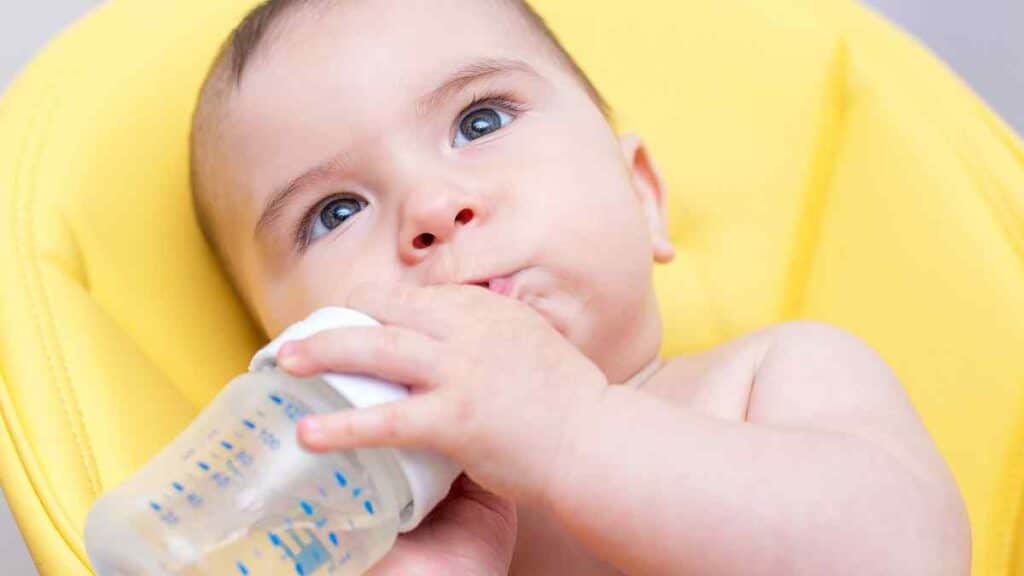
Conclusion
Preparing baby formula involves several careful considerations, and the type of water used is a significant one. While it is safe to boil tap water for baby formula, it’s essential to be aware of the limitations of this process. Boiling can effectively kill harmful bacteria and viruses, but it doesn’t eliminate chemical contaminants or heavy metals that may be present in the water. Moreover, boiling water from sources that contain a high level of fluoride may lead to an over-concentration of this mineral, which can be harmful to babies.
Ultimately, the safety of the water used for baby formula preparation plays a crucial role in your baby’s health. Making an informed decision can ensure that your baby gets the nutrients they need without the risk of exposure to harmful contaminants. By doing so, you’re ensuring that your little one gets off to the best start possible in their life’s journey.
Did this article help you? If so, we’d love to hear from you in the comments below.

